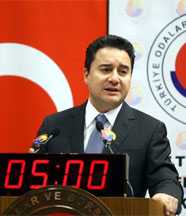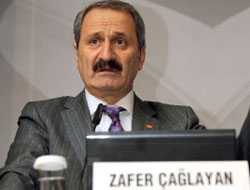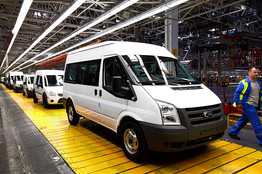In the wake of the Great Recession, the recovery in U.S. metropolitan areas has been rather slow and uneven, as Brookings’ quarterly MetroMonitor report has shown. But the global economy will grow by almost 5 percent in 2010, according to IMF projections. So where is that growth coming from?

That’s one question behind our new Global MetroMonitor report, co-authored with colleagues at LSE Cities, and with assistance from Deutsche Bank Research. We examined 150 of the world’s largest metropolitan economies–50 each in the United States, Europe, and other world regions–and tracked their performance on employment and income before, during, and after the downturn.
The result?
Istanbul takes the top ranking for economic growth in the past year. Its economy expanded by 5.5 percent on a per-capita basis, and employment rose an astonishing 7.3 percent between 2009 and 2010. Turkey’s banking sector, which was less invested in risky financial instruments, became a safe haven for global capital fleeing established (and exposed) markets during the downturn. Together with the metro area’s increasingly diversified set of trading partners, the metro bounced back very strongly after being hit hard in the recession.
Istanbul’s experience exemplifies the relatively strong performance of emerging-market metropolitan areas in the past several years. Of the top 30 metropolitan areas in our growth rankings, 24 were lower-income metros, primarily in rising nations of Asia and Latin America. Many of these metro areas experienced uninterrupted growth during the Great Recession, or just a mild downturn from which they have fully recovered. (Derek Thompson over at The Atlantic has a great post, complete with captioned pictures of the 30 top performers.)
As emerging-market metros lead the way in recovery, their established counterparts are bringing up the rear, particularly those in Europe. Although U.S. metros were hit harder by the recession on average, many have posted strong income growth in the past year—including metros in which manufacturing rebounded strongly, like Detroit, Cleveland, and St. Louis. Among Western European metros, however, the highest ranking in the past year was Toulouse, France, at a meager 80 out of 150. The ongoing sovereign debt crisis plaguing Eurozone nations pulled down their metro growth rates in 2010. The bottom-ranking metro on the list will come as no surprise—it’s Dublin, which continued to shrink economically at a rapid rate in 2010. (Dubai ranks close both alphabetically and economically, at number 149, as it deals with the fallout from its own severe real estate crash.)
The new report sets the backdrop for a Global Metro Summit we’re co-hosting with LSE and the Alfred Herrhausen Society next week in Chicago, where leaders from around the country and the world will discuss the ingredients for metro success in the “next economy.” As recession and recovery further shift the locus of metro growth south and east, U.S. and European metros should increasingly look to position their firms to meet the demands of a growing middle class in their emerging-metro counterparts.
via Istanbul An Example of Economic Growth in Emerging-Market Metropolitan Areas – Up Front Blog – Brookings Institution.




